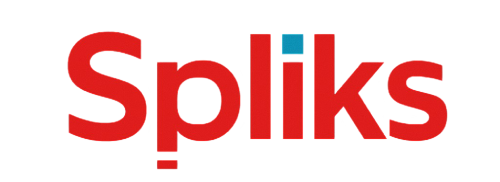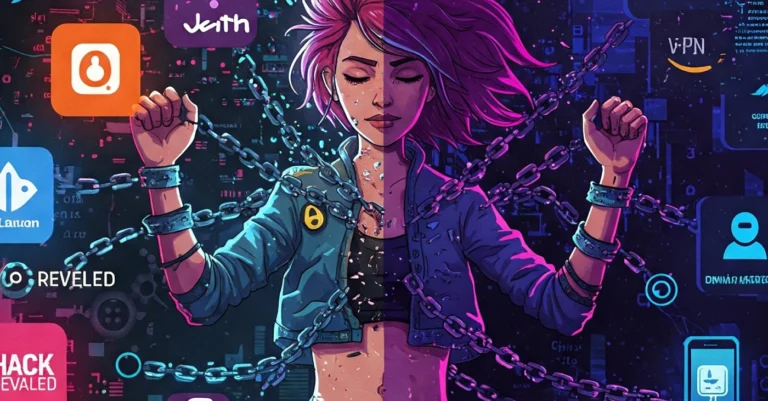In 2025, technology is smarter, sleeker, and sneakier than ever. Big Tech continues to dominate nearly every aspect of our lives—from how we shop and stream to how we work and think. But what if we told you there’s a powerful hack that tech companies don’t want you to know?
This isn’t about jailbreaks or shady apps. It’s about understanding how the tech industry shapes your digital habits—and how to reclaim control. Ready for a behind-the-scenes look? Let’s dive into the 2025 tech hack that puts you back in charge.
🚨 The Big Secret: You Are the Product
Before we get into the actual hack, let’s address the uncomfortable truth: If you’re not paying for the product, you are the product.
Tech companies profit by:
- Tracking your behavior
- Collecting your data
- Influencing your decisions with algorithms
The “free” tools you love—search engines, social media, browsers, AI chatbots—are engineered to learn everything about you. And in 2025, these tools have become incredibly sophisticated at doing just that.
The hack? Learn to stop feeding the machine unnecessary data.
💡 Hack #1: Use Privacy-Focused Tools (And Avoid Fake “Private” Modes)
Most browsers now offer “Private” or “Incognito” modes. But here’s the trick: they don’t hide your activity from websites, ISPs, or Big Tech companies. All they do is prevent your local browser from saving history.
Instead, switch to genuinely privacy-first alternatives, such as:
- Brave (blocks trackers by default)
- DuckDuckGo (search without surveillance)
- ProtonMail and Tutanota (encrypted email)
- Signal or Session (private messaging)
Also, ditch the “free” VPNs. If you’re using a VPN that doesn’t charge you, it’s likely profiting from your data.
What tech companies don’t want: A user who can’t be tracked, profiled, and sold to advertisers.
📲 Hack #2: Turn Off “Always Listening” Settings
Voice assistants like Alexa, Siri, and Google Assistant are always “on.” They’re trained to respond to voice commands—but they also collect ambient sound data, which is sometimes stored or analyzed.
In 2025, many smart devices have microphones by default, even if they don’t advertise it. That smart TV or doorbell? It might be recording more than you think.
Here’s what you can do:
- Disable voice assistants entirely
- Review and delete voice history regularly
- Mute smart speakers when not in use
- Physically cover microphones when possible
Why tech companies won’t tell you: These devices become less valuable when they can’t harvest your data.
🧠 Hack #3: Outsmart Algorithmic Manipulation
Tech platforms use AI to shape your reality. Your feed, recommendations, and even notifications are engineered to trigger emotions, maximize screen time, and influence purchases.
But in 2025, there’s a growing movement toward algorithm detox—learning how to outsmart the system.
Tips to do this:
- Don’t engage with outrage or clickbait content
- Regularly clear your algorithmic history (YouTube, TikTok, Instagram)
- Use RSS readers or curated news apps instead of social feeds
- Turn off personalized recommendations where possible
The secret they hide: The more emotionally reactive you are, the more predictable—and profitable—you become.
🛠 Hack #4: Use AI Without Getting Used by AI
AI tools like ChatGPT, Copilot, and Jasper are fantastic—but they also learn from your inputs and behavior. What you type, generate, and store can feed into larger training systems, especially if you’re using free tiers.
How to flip the script:
- Use AI locally when possible (like private LLMs or open-source models)
- Avoid sharing sensitive data or personal ideas in AI chats
- Regularly delete your chat history and cached files
- Use AI tools in incognito browsers or sandbox environments
Why companies resist this: More user data = better models = bigger profits. If everyone starts protecting their input, AI loses a key source of growth.
💰 Hack #5: Say No to Subscriptions You Don’t Need
In 2025, nearly every app and device comes with a monthly subscription fee—from cloud storage to premium AI features. The subscription model is profitable for companies, but often wasteful for consumers.
Start doing these:
- Audit your digital subscriptions quarterly
- Use services like Truebill, Rocket Money, or manual tracking
- Replace paid tools with free, open-source versions (e.g., LibreOffice, Notion alternatives, open-source design tools)
- Ask yourself: Do I need this monthly or is there a one-time buy option?
Why tech companies love subscriptions: They create a steady revenue stream—even if you barely use the service.
🔍 Hack #6: Opt Out of Data Collection (Yes, It’s Possible)
Most people click “Accept All” without reading the fine print. But in 2025, more platforms legally require opt-out options thanks to GDPR, CCPA, and newer privacy laws.
Don’t just accept default settings:
- Visit privacy dashboards (Google, Meta, Amazon, Microsoft all have them)
- Disable ad personalization
- Request data deletion under privacy laws (you can do this via forms or email)
- Use browser extensions like uBlock Origin or Privacy Badger to block data collection
What companies fear: A fully informed user exercising their legal rights.
🤖 Hack #7: Resist AI Recommendations in Real Life
From shopping to dating, AI now makes choices for you. Want to watch something? AI will pick. Need a gift? AI will suggest. Looking for a partner? AI matches you based on “compatibility scores.”
The problem? You’re being nudged toward predictable behavior—and that’s profitable for companies, but limiting for your growth.
Here’s how to fight back:
- Make spontaneous decisions without asking AI
- Read reviews from humans, not summaries from bots
- Use AI as a tool—not a decision-maker
- Occasionally go analog (real books, in-person shopping, human conversations)
Why they won’t tell you this: Less dependence on their systems means less profit and less control.
🔓 Bonus Hack: Own Your Data (Don’t Just Lease It)
Cloud storage, SaaS tools, and subscription-based platforms make you rent your access. Once you stop paying or if a platform shuts down, you could lose everything.
In 2025, it’s more important than ever to own your digital assets:
- Backup important files locally
- Use external drives or personal NAS systems
- Export and store important emails, photos, and notes offline
- Don’t rely solely on cloud-based creativity tools—have offline copies of your work
What tech giants hide: They want your data to live in their ecosystem. That way, you’re always tied to them.
Final Thoughts: Empowerment Is the Ultimate Hack
The greatest tech hack of 2025 isn’t a secret command or a hidden setting. It’s digital self-awareness. Understanding how tech companies profit from your data, attention, and behavior—and choosing to take control—puts the power back in your hands.
Big Tech doesn’t want you to:
- Think critically about their algorithms
- Protect your privacy
- Use alternatives
- Question convenience
But now you can.
So the next time you install an app, click a link, or ask an AI for help, remember: you have more control than they want you to believe.


